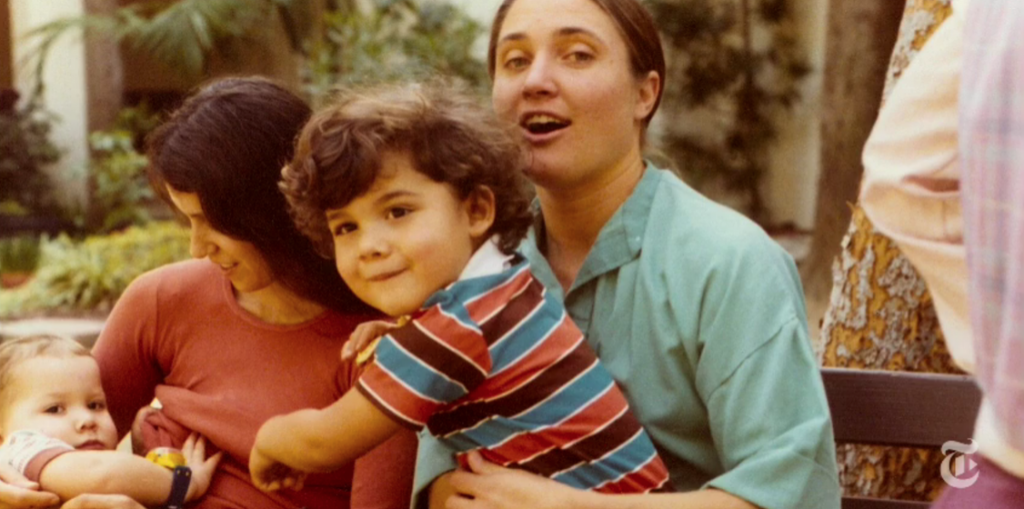16 de maio de 2016
Um curta-documentário do New York Times explora como nossos modelos durante o desenvolvimento da linguagem e da fala influenciam nossa maneira de falar até a idade adulta.
O jornalista e documentarista americano David Thorpe resolveu investigar algumas teorias sobre o estereótipo do que é uma “voz gay”. Primeiramente, é importante trazer uma ressalva apresentada pelo próprio Thorpe: é preciso considerar que não existe uma voz fundamentalmente gay. A voz de alguém não é prova de sua sexualidade.
O documentário conta a história de dois homens, um com um jeito de falar estereotipicamente considerado homossexual – Kris -, e outro com jeito de falar estereotipicamente heterossexual – Matt.
Kris fala sobre como é confundido com uma mulher no telefone em cerca de 98% das vezes e como seus amigos comentam que sua voz “é gay”. Matt conta sobre como ele fala de maneira muito parecida com seu pai e irmãos, com os quais joga futebol regularmente. Ele considera que “soa hétero”. Diferente, porém, do que dita o estereótipo, Kris é heterossexual e Matt é homossexual.
O linguista Benjamin Munson, da Universidade de Minnesota, explica esse fenômeno:
“Pense no ambiente de aquisição de linguagem do bebê, da criança. Todos nós somos apresentados com muitos modelos de como falar. Ouvimos homens, mulheres, crianças da nossa idade, adultos, e em todas essas interações temos diferentes oportunidades de emular diferentes aspectos das falas dessas pessoas.”
Kris foi criado praticamente só por mulheres. Na sua família as mulheres eram maioria, e ele viveu a maior parte de sua vida rodeado por figuras femininas. Matt, de modo diferenciado, vem de uma família predominantemente masculina. Em seu ambiente familiar, rodeado por seus quatro irmãos e seu pai, imperava uma lógica machista e, em suas palavras, injusta – muitas vezes, depois do almoço, os homens da família saíam para jogar futebol enquanto as mulheres ficavam para trás cuidando da limpeza.
Como diz o linguista Ron Smyth, da Universidade de Toronto Scarborough, não é que uma criança que se identifica como gay diz ‘quero soar como uma mulher’, mas sim que ela está se identificando com algum modelo de jeito de falar e imitando esse jeito.
Faz diferença quem são os modelos de jeito de falar porque homens e mulheres apresentam micro variações na pronúncia das palavras. Então, quando um menino emula o jeito de falar de sua mãe, o estereótipo considera sua voz “afeminada” e liga isso à sua sexualidade. Trata-se de uma generalização equivocada, pois, como ressalvamos acima, a voz de alguém não é evidência de sua sexualidade – mas pode revelar que figuras foram importantes para uma pessoa durante o período de aquisição da linguagem oral.
Assista ao vídeo, na íntegra, aqui:
